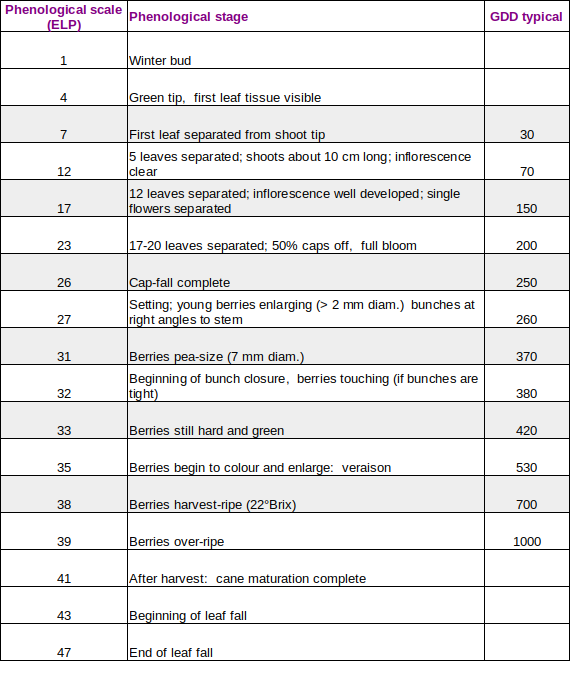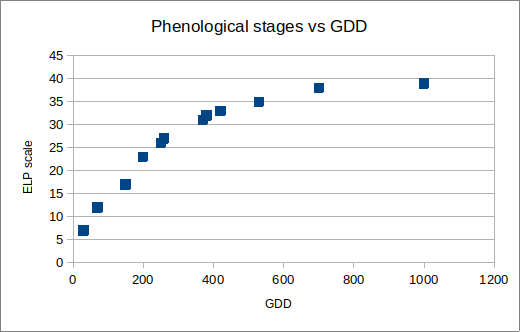CorbeauCast
CorbeauCast offers temperature forecasting based on machine learning. It provides vineyards with improved temperature forecasting. Trials have shown it is more accurate than the local Met Office forecast up to 70% of the time.
CorbeauCast also provides weekly summary charts of temperatures, %RH, Growing Degree Days (GDD) and mildew At Risk Hours (ARH).
Use GDD to check anticipated phenological stages and how a season is progressing.
Use ARH when considering interventions against mildews.
CorbeauCast is suitable for both Davis weather stations and Ecowitt weather stations. CorbeauCast was developed and tested in the Backyard-vineyard and JoJo’s Vineyard (Russell’s Water, Henley-upon-Thames).
Special thanks to Ian Beecher Jones who kindly provided access to weather observations from his Davis Vantage Pro weather station through the 2024 season. Corbeau is pleased to continue this collaboration in 2025!
Corbeau is also pleased to announce that it recently added weather stations from Soil Moisture Sense Limited to the list of instruments compatible with CorbeauCast.
Latest microclimate report



2024 comparison


2024 comparison
Temperature forecasts

OpenWeatherMap forecast
CorbeauCast
PLEASE NOTE!
The UK Met Office moved its computing off-site during April & May 2025 which has resulted in less reliable availability of weather forecasts on their web API. Corbeau is therefore migrating from the Met Office to OpenWeatherMap. OpenWeatherMap offers instant, reliable weather forecasts at any time of the day and therefore offers a better local weather forecast upon which to base CorbeauCast microclimate forecasting.
If you have any questions about your subscription, do not hesitate to Contact us.
Forecasts vs observations

OpenWeatherMap forecast
Davis weather station observation
CorbeauCast

Mildew advice
Powdery mildew and downy mildew are both important pathogens of grapevines and farmers typically spray sulphur and copper fungicides at 14 day intervals during the growing season. Conditions of high temperature and humidity encourage the growth and spread of mildews. CorbeauCast provides a daytime mildew risk indication of HIGH, MEDIUM and LOW. These correspond to vineyard conditions:
T>14 degC and RH >82%
T >14 degC and RH < 82%
T < 14 degC
At times of HIGH mildew risk, it is important to check the At Risk Hours number frequently because it can accelerate rapidly.
The At Risk Hours (ARH) chart provides a year-long record of accumulated mildew risk which can be considered when deciding on fungicide application. There are a number of potential intervention points:
75 hours – to tackle over-wintering spores
200 hours – to tackle mildew development
325 hours – to stop new mildew development
450 hours – to stop further mildew development and then every 125 hours if the season permits
Growing Degree Days advice
Growing Degree Days (GDD) is a useful record of how much energy a vine can potentially use to grow, flower, fruit and ripen. The GDD chart shows a cumulative total of GDD throughout the season.
It can be used to follow progress against expected phenological stages, alert to unexpectedly slow development and with a long-range weather forecast, to anticipate future stages.
Use the chart below to see how the vineyard or varietal parcels are progressing against expectations.


Ecowitt weather station
Check out the Ecowitt WG69 specification for live weather station observations, additional detailed charts and downloadable data.